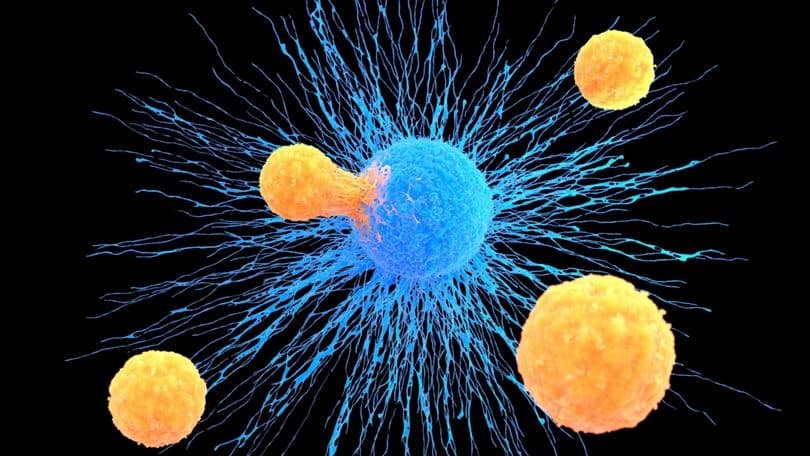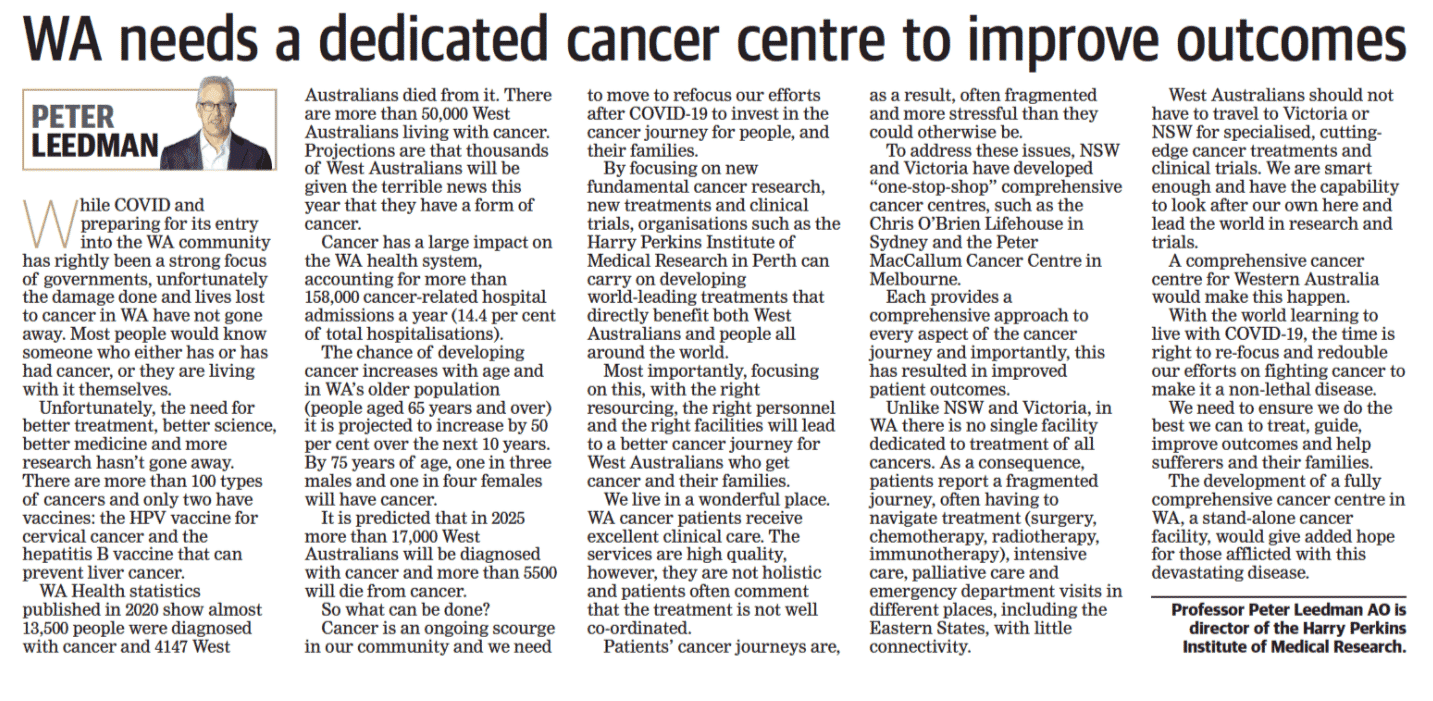
WA needs a dedicated cancer centre to improve outcomes
OpEd Opinion piece, The West Australian: 1 March 2022, by Professor Leedman AO
While COVID and preparing for its entry into the WA community has rightly been a strong focus of governments, unfortunately the damage done and lives lost to cancer in WA have not gone away. Most people would know someone who either has or has had cancer, or they are living with it themselves.
Unfortunately, the need for better treatment, better science, better medicine and more research hasn’t gone away. There are more than 100 types of cancers and only two have vaccines: the HPV vaccine for cervical cancer and the hepatitis B vaccine that can prevent liver cancer.
WA Health statistics published in 2020 show almost 13,500 people were diagnosed with cancer and 4147 West Australians died from it. There are more than 50,000 West Australians living with cancer. Projections are that thousands of West Australians will be given the terrible news this year that they have a form of cancer.
Cancer has a large impact on the WA health system, accounting for more than 158,000 cancer-related hospital admissions a year (14.4 per cent of total hospitalisations).
The chance of developing cancer increases with age and in WA’s older population (people aged 65 years and over) it is projected to increase by 50 per cent over the next 10 years. By 75 years of age, one in three males and one in four females will have cancer.
It is predicted that in 2025 more than 17,000 West Australians will be diagnosed with cancer and more than 5500 will die from cancer.
So what can be done?
Cancer is an ongoing scourge in our community and we need to move to refocus our efforts after COVID-19 to invest in the cancer journey for people, and their families.
By focusing on new fundamental cancer research, new treatments and clinical trials, organisations such as the Harry Perkins Institute of Medical Research in Perth can carry on developing world-leading treatments that directly benefit both West Australians and people all around the world.
Most importantly, focusing on this, with the right resourcing, the right personnel and the right facilities will lead to a better cancer journey for West Australians who get cancer and their families.
We live in a wonderful place. WA cancer patients receive excellent clinical care. The services are high quality, however, they are not holistic and patients often comment that the treatment is not well co-ordinated.
Patients’ cancer journeys are, as a result, often fragmented and more stressful than they could otherwise be.
To address these issues, NSW and Victoria have developed “one-stop-shop” comprehensive cancer centres, such as the Chris O’Brien Lifehouse in Sydney and the Peter MacCallum Cancer Centre in Melbourne.
Each provides a comprehensive approach to every aspect of the cancer journey and importantly, this has resulted in improved patient outcomes.
Unlike NSW and Victoria, in WA there is no single facility dedicated to treatment of all cancers. As a consequence, patients report a fragmented journey, often having to navigate treatment (surgery, chemotherapy, radiotherapy, immunotherapy), intensive care, palliative care and emergency department visits in different places, including the Eastern States, with little connectivity.
West Australians should not have to travel to Victoria or NSW for specialised, cutting-edge cancer treatments and clinical trials. We are smart enough and have the capability to look after our own here and lead the world in research and trials.
A comprehensive cancer centre for Western Australia would make this happen.
With the world learning to live with COVID-19, the time is right to re-focus and redouble our efforts on fighting cancer to make it a non-lethal disease.
We need to ensure we do the best we can to treat, guide, improve outcomes and help sufferers and their families.
The development of a fully comprehensive cancer centre in WA, a stand-alone cancer facility, would give added hope for those afflicted with this devastating disease.
Professor Peter Leedman AO
Director, Harry Perkins Institute of Medical Research

